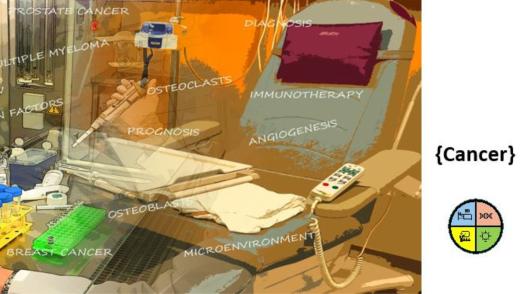
Water quality and health funding area
The Water Quality and Health Department focuses on the development and application of forward-looking methods for the analysis of health-related microbiological water quality. Currently, the following research projects, among others, can be supported:
Water is one of the most valuable resources in the world. The quality of water is fundamental to human health in all areas of life. Intensive activities reflect this relevance also at the level of research and science. In the medical/clinical context, water also has an important significance, as water of special quality must be made available for specific treatments for patients.
Current research projects
Aktuelle Forschungsvorhaben
"Revolutionising Water Quality Testing
Estimates show that at least 2 billion people use faecally contaminated drinking water resources. Water contaminated with faeces can contain high concentrations of pathogens and leads to infectious diseases and epidemics when exposed. According to the WHO, nearly 10% of the global health burden is still due to contaminated water or lack of sanitation. The research group led by Prof. Andreas Farnleitner is therefore working on new, innovative investigation methods for faecal-microbiological pollution in water and water resources for faster - e.g. by field detection or/and online methods - and more comprehensive analysis. What are the sources of pollution? What are the associated health risks? The information obtained is essential for the implementation and control of water and sanitation safety plans according to WHO guidelines. A special focus of the group is the molecular biological (DNA-targeted) detection of microbiological faecal indicators and genetic faecal markers from human, but also animal, pollution sources.
"Highlighting Antimicrobial Resistance in Water Resources".
The increase in antibiotic-resistant bacteria (ARB) is a global threat to human and animal health (buzzword: "One Health"). In addition to everyday clinical practice, where ARBs are already an acute problem in the treatment of patients, the increased occurrence of ARBs associated with humans in water resources is also a growing cause for concern. Scientific facts on the health significance of the spread of ARBs via wastewater and surface water must be collected in the future in order to be able to derive a well-founded assessment - and if necessary - appropriate management measures. The research group around Prof. Alexander Kirschner and Prof. Andreas Farnleitner, in cooperation with the Medical University of Graz (Doz. Gernot Zarfel, Doz. Clemens Kittinger), is dealing with the occurrence, the significance, but also the mechanisms of the spread of resistance and the formation of ARBs associated with humans in water resources.
"Emerging Pathogens in Water"
Global changes, such as global warming, also lead to lasting changes in water ecosystems, such as the significant increase in surface water temperatures and the emergence of water-associated pathogens. Specifically, members of the genus Vibrio have been identified as "bioindicators of global warming" in water bodies. Several pathogens belong to the genus Vibrio, including Vibrio cholerae, the causative agent of cholera, which causes major problems especially in subtropical and tropical latitudes or in crisis areas. In bathing waters of temperate latitudes, infections caused by Vibrio cholerae strains that cannot cause cholera are increasingly being recorded. These are wound infections, ear infections, blood infections or massive infections of the skin (necrotising fasciitis), which can lead to death in certain groups of people with pre-existing conditions or weakened immune systems. Prof. Alexander Kirschner's research group has been working for years with national and international partners on new, innovative methods for detecting Vibrio cholerae in bathing waters as well as on models that make it possible to predict the occurrence of the pathogen in these waters.
Further information on the funding area
Would you like to learn more about the field of "Water Quality and Health"? In this interview, Univ.-Prof. PD. Dr. Andreas Farnleitner, MSc.Tox, Head of the Department of Water Quality and Health at KL, talks about the importance of the commitment to clean drinking water and the challenges it poses.
Are you interested in supporting a funding topic of the Water Quality and Health Department?
Please contact us, we will be happy to provide you with further information.






